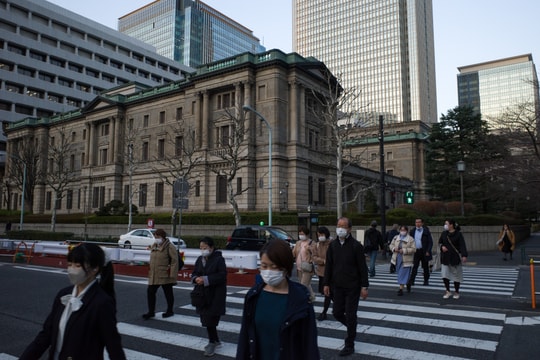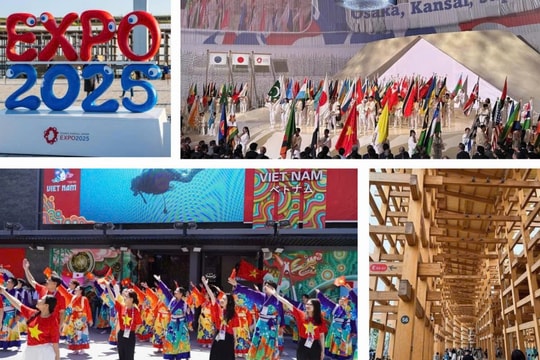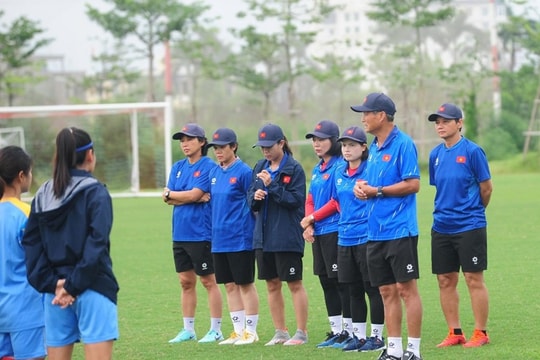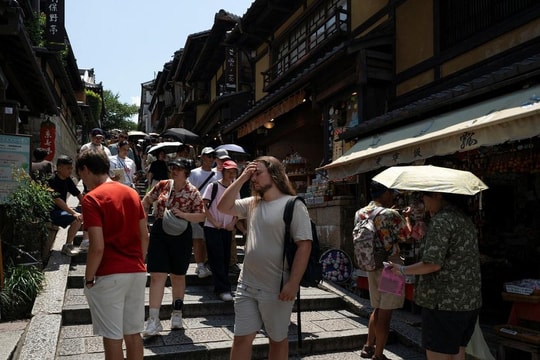Japan's Lower House Election: Prime Minister Abe's Predicted Victory
The overwhelming result of the ruling coalition between the Liberal Democratic Party (LDP) and the Komeito Party was predicted before the Lower House election took place.
On October 22, Japan held the Lower House election. This Lower House election was mainly a competition between three major parties, including the ruling coalition Liberal Democratic Party (LDP) and Komeito Party; the Party of Hope and the Japan Restoration Society; the Japanese Communist Party, allied with the Constitutional Democratic Party and the Social Democratic Party.
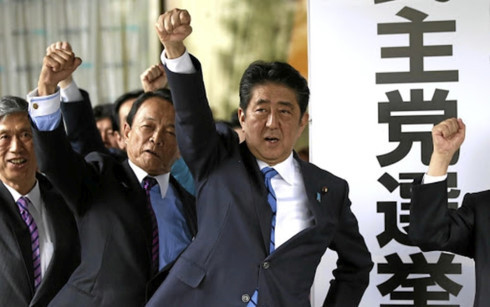 |
| Prime Minister Shinzo Abe's ruling coalition won a landslide victory in Japan's House of Representatives election. Photo: Reuters |
Some say that the decision to hold an early general election is a wise move by Prime Minister Abe, as it creates momentum for a solid victory for the ruling coalition so that Mr. Abe can continue to hold the position of Prime Minister and amend the Constitution. However, there are also opposing views that Mr. Abe is risking his political life.
The results are not surprising.
At exactly 8:00 p.m. on October 22 (Japan time), the Japanese House of Representatives election ended. According to the results as of 7:17 a.m. on October 23, the ruling coalition between the Liberal Democratic Party (LDP) and the Komeito Party won 312/465 seats, or two-thirds of the seats in the House of Representatives. The Constitutional Democratic Party won 54 seats, and the Hope Party won 49 seats.
This number may increase as some constituencies just started voting today, such as Kyushu. The turnout rate was 53.69%, a slight increase from the previous Lower House election.
This is a great victory for Mr. Abe. And it can also be said that it is a victory without many surprises. Thus, Mr. Abe continues to become the Prime Minister of Japan. On the afternoon of October 23, Prime Minister Abe will hold a press conference to announce the topics that need to be implemented by the new Cabinet in the coming time, in which priority will continue to be given to economic growth, government reform and the Constitution.
According to the Japanese Ministry of Internal Affairs, the number of early voters in this year's Lower House election reached more than 21 million, an increase of 62.54% compared to the previous election. This year's election has 1,180 candidates running for 465 seats. Of these, 289 lawmakers are directly elected and 176 are elected through a proportional representation system.
Prime Minister Abe also confirmed that he will continue to reappoint the entire Cabinet, in which Mr. Taro Aso will remain as Deputy Prime Minister and Minister of Finance and Mr. Kono will remain as Foreign Minister. It is expected that on October 23, Mr. Abe will hold talks with the Presidents of the opposition parties.
Vigorous in reforming the Constitution
Ms. Yuriko Koike, leader of the Party of Hope, which was established a few days before the Lower House election with the aim of defeating Mr. Abe, admitted that this was an undeniable result.
Political analyst Akira Koike believes that this Lower House election is not a three-pole struggle but is actually a two-pole struggle between the ruling coalition party, the Liberal Democratic Party and Komei (Komei) of Prime Minister Abe, the Party of Hope of Tokyo Governor Yuriko Koike and the opposition parties including the Constitutional Democratic Party and the Japanese Communist Party. Mr. Akira Koike also believes that Mr. Abe's victory will be a sadness for those who oppose the Prime Minister's constitutional reform.
An expert from Meiji University said that with this victory, Mr. Abe could become the longest-serving Prime Minister of Japan. In addition, it also shows that Mr. Abe will continue his determination to implement tough measures to deal with North Korea in the coming time.
Revising the pacifist Constitution has always been a top priority for Japanese Prime Minister Shinzo Abe, focusing on reforming Article 9 of the Constitution to allow Japan to exercise the right to collective self-defense. This is important to Prime Minister Abe because he believes that the current provisions still raise questions about the constitutionality of the Japan Self-Defense Forces (SDF) and the types of activities they are allowed to engage in.
In a statement after his victory, Mr. Abe also emphasized that the result of this Lower House election was only a modest result, but represented the voice of the people who wanted a stable political system.
Regarding constitutional reform, which is considered a core task of the ruling LDP, Mr. Abe affirmed that this is a matter decided by the people, so it is extremely important to increase people's awareness of this issue. Therefore, the parties at the Constitutional Review Commission will have to present their proposals and have constructive discussions regarding constitutional reform. Mr. Abe also hopes that the parties will agree with his constitutional reform.
With this victory in the House of Representatives, Mr. Abe will certainly be more "energetic" in reforming the Constitution, especially in the context that the Japanese people are tending to support him in putting pressure on North Korea. Simply because, North Korea may cause a direct impact on the security of the people of this country./.
According to VOV
| RELATED NEWS |
|---|


